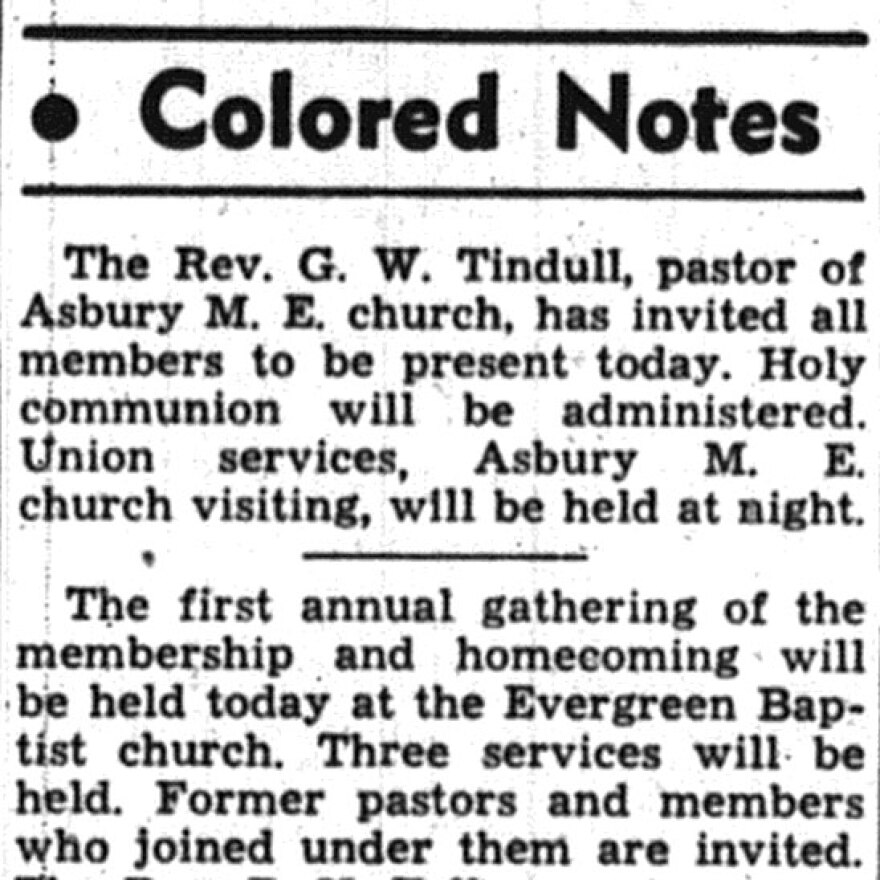The full interviews from this segment are available below:
Interview with Andrew Eckdahl, July 6, 1978:
https://kentuckyoralhistory.org/ark:/16417/xt7gms3k0j75
The senior managing editor for the Lexington Herald discusses media coverage of news affecting the African American community in Lexington. Integration's effect on subsequent coverage and the hiring of African American reporters is also discussed. Mr. Eckdahl reminisces about Fred Wachs (general manager of the Herald for many years) and his view of integration, as well as the newspaper's coverage of the civil rights movement.
Interview with Ovan E. Hatchett, Jr., January 19, 1987:
https://kentuckyoralhistory.org/ark:/16417/xt7q2b8vdp9t
A graduate of Lexington Dunbar High School, Mr. Hatchett recalls family history including memories of his maternal grandfather, a self taught barber and restauranteur who also owned the Hustler's, a semi-pro baseball team. He remembers his parents' occupations and education, and the mixed racial ancestry in his mother's family. Mr. Hatchett reminisces about growing up in a close knit, inner city community which was partially integrated, how the neighborhood has evolved over the years, and remarks upon the influence of the community to his sense of identity. He describes living in an integrated neighborhood today including the backgrounds, skills, and economic status of his neighbors. The role of his church, First Baptist, within African American society is commented upon, as are his views as to how the African American has changed and why. Mr. Hatchett recalls the leadership abilities of Reverend Homer Nutter, and the broadening of the religious message and teaching at his present place of worship. John Wallace, a family friend who assisted Hatchett in obtaining his first job at the Herald Leader as an apprentice, is remembered, as is Carter Shavers. Overt discrimination at the newspaper, the influence of the union presence upon salaries, moving up through the ranks, and supervisors such as W.C. Thompson are recounted. Mr. Hatchett describes learning the craft of printing and the newspaper business, how changing technology has impacted employment opportunities, the tremendous gains in minority employment at all levels of the paper, his supervisory experiences, and the cohesiveness of the African American employees. Mr. Hatchett reviews the quality of education today versus the 1960s including the lack of equipment, relationship with teachers, parental involvement in school, scholastic achievements and other factors. He critiques the civil rights movement and its impact upon Lexington, discusses the importance of IBM to the African American community, and comments upon politics and its role with the African American community.
Interview with Merlene Davis, April 30, 2015:
https://kentuckyoralhistory.org/ark:/16417/xt7xks6j438m
Merlene Davis first recalls her experience of the integration of the school system in her hometown of Owensboro, Kentucky, also explaining her family background. She discusses her education in journalism, which was completed, after a hiatus of nine years and a change of major from education, at the University of Kentucky in Lexington, Kentucky, and subsequently at the University of California, Berkeley, through the Maynard Institute. She explains how, after working as a journalist in Memphis, Tennessee for a short time, she was recruited in 1980 by the then-editor John Carroll to the Lexington Herald-Leader newspaper, where in 1985 she was assigned her own column. She describes several of the controversial pieces she has written in her column, reflecting on the progress that has been made in race relations in three decades as well as the problems that remain unsolved. After telling what advice she would give to aspiring journalists and young students, she discusses her role through her column as a voice for African Americans and as a mother with wisdom to share. Finally, she expresses her gratitude to her family, both immediate and extended, describing the ways in which they enabled her to excel.




